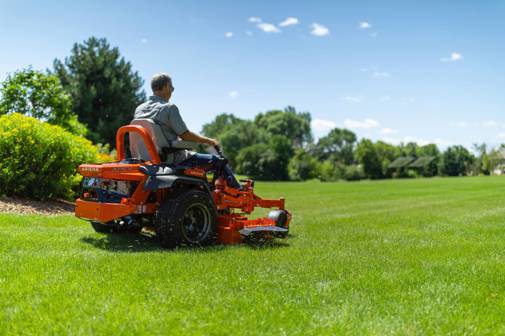Benefits of green spaces and landscaping for people and the planet
22 fev. 2023 Landscaping & Turfcare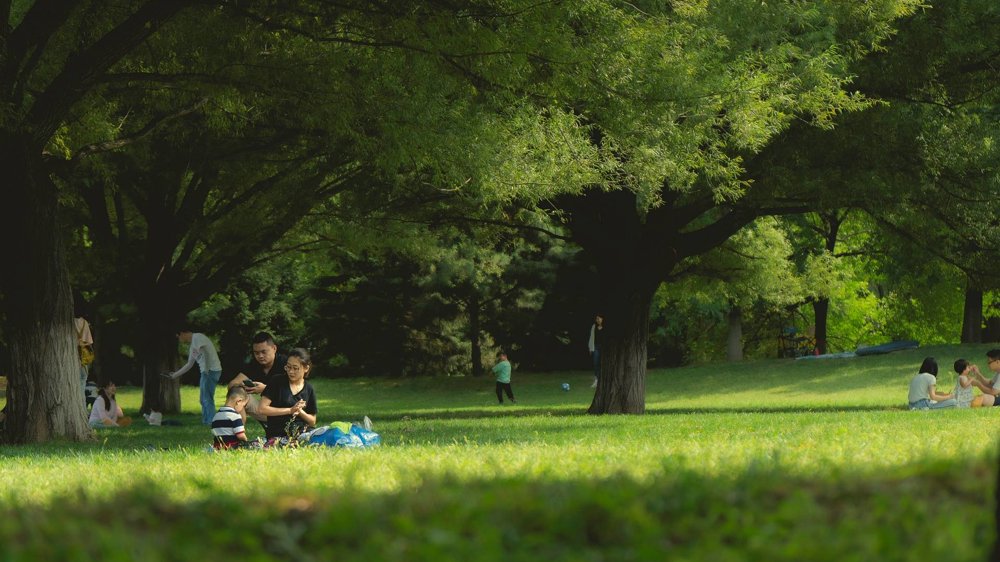
Green spaces are some of the most beloved areas of any community. It's human nature to seek out green spaces – in a city, where these spaces are few and far between, they're practically an oasis.
Whether it's Central Park or the local football field – or even someone's back garden – access to nature is treasured the world over. The work landscapers do is vital to maintain these beloved green spaces.
Importance of your role in landscape maintenance
For landscape professionals, it's easy to get caught up in a busy schedule, ploughing from one job to the next without taking the time to appreciate what you've achieved.
Sometimes, you need to just give yourself a pat on the back and acknowledge all the good your work is doing.
Without landscape professionals, these green spaces wouldn't be the calm, beautiful places they are and would quickly become overgrown and unappealing. We've gathered a handful of ways green spaces benefit others, to give you a sense of how valuable the landscaping profession is to society as a whole.
How green spaces help people
Green spaces are an important part of daily life for many people. Whether they're walking their dog, taking their kids to the park, or relaxing at lunch: people value these public spaces and time in nature hugely; perhaps more than they even realise.
It doesn't even have to be a public space, or an area that the whole population has access to – even a private garden can benefit the people that use it immensely.
Here are a handful of ways green spaces benefit people.
Bringing the community together
Starting off with those treasured public spaces rather than gardens: the community aspect of green spaces is one of their greatest qualities.
Parks and other green spaces are usually the heart of a community, where people gather to meet friends, go on walks, or just relax surrounded by nature. Kids can meet up to play football after school, and families can go for a Sunday afternoon picnic.
Think back on how many times in your life – outside of work – you have visited a park. It's probably more than you can even recall! Parks are used by people of all ages, from when we are very young to very elderly.
In the city
While the local park in a rural village is of course valued by the people who live there, in urban areas these green spaces are often relied upon more heavily.
After all, it's not uncommon in a city for people to not own a back garden. In fact, the vast majority don't have access to a private garden at all. Public spaces like parks provide a place for people to gather and relax, play sports and escape from the concrete jungle of the city.
Providing a space for children to play
For many of us, an idyllic childhood is one spent outside in the natural world. Unfortunately, urban design has limited this to a select few spaces in a city – areas that landscape professionals are responsible for maintaining.
We all have memories of playing outdoors as children: by creating a public space that is safe and attractive for families to use, you're helping to support the youngest in society. Gardens are another fantastic space for children and families to use, and landscapers help to keep them in the best shape possible.
Whether it's a humble football field or a huge public space, green spaces create an environment that is perfect for children to play in.
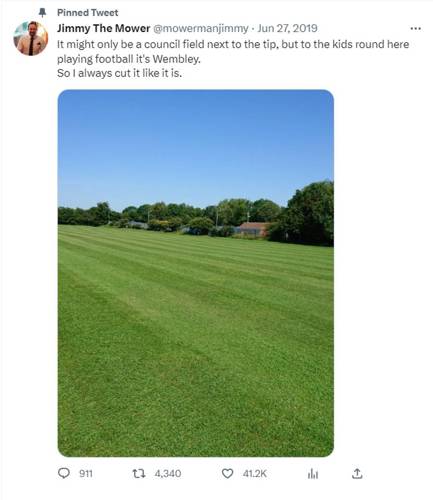
Mental health
Spending time in nature has a healing effect on humans. Green spaces have been proven to have a positive impact on mental health, including reducing anxiety and depression while generally improving wellbeing.
It's been noted that the effect of green spaces on mental health is particularly impactful on individuals of a lower economic status, especially if they're living in urban areas. When people have little material wealth or resources, green spaces provide a place for leisure and respite free of charge.
People often see nature as calming and rejuvenating, which is part of why access to green spaces is so important for our mental health. You only have to look to the pandemic to see an example of how people responded to challenging circumstances. People that owned gardens spent more time in them than ever, while others sought out green spaces when able to.
Gardens are a treasured refuge
So many people view their gardens as a beloved refuge – once winter passes, they spend more time in their gardens than out of them!
Anyone who knows someone with a passion for gardening or the outdoors will know how important a garden can be. It has a positive impact on mental health, provides a space for people to socialise out in the fresh air, and is generally a source of joy for many people.
While many people adore their gardens, elderly people in particular rely on them – while they may not be able to go on lengthy walks, having a garden often pushes them to be more physically active. Landscapers can take care of these much-loved green spaces, and help people make the most out of their gardens.
Public health
While it may seem an outlandish claim that green spaces and landscapers save lives (move over firefighters!), it's true that people who live close to green spaces tend to live longer, and generally have a better quality of life.
While there are several factors at play, the presence of green space clearly has a positive effect on public health. According to ISGlobal, "up to 43,000 premature deaths could be prevented each year if these cities were to achieve the WHO recommendations regarding residential proximity to green space".
Besides the mental health benefits previously discussed, green spaces also help people maintain their physical health. Providing a space for people to exercise away from roads and busy urban areas encourages people to do more of it! With the added element of improved air quality and its associated health benefits, it's unsurprising that green spaces are good for public health.
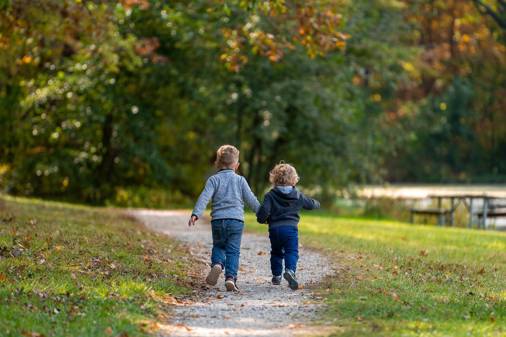
Environmental benefits of green spaces
You may not be surprised by the idea that having more green spaces is good for the environment, but you might not be so familiar with the reasons why!
The work landscapers do helps preserve green spaces, and with growing awareness of environmental issues, we're only likely to see the development of more of these spaces.
Here are a few ways green spaces help the environment.
Reducing the Urban Heat Island Effect
If you haven't heard of the Urban Heat Island Effect, it concerns the unnaturally high temperatures in cities caused by a lack of greenery.
Plants, trees and grass absorb heat, while concrete and man-made materials reflect it back into the atmosphere. This is why urban areas (particularly if it's a major city) tend to run hotter. Cities that have fewer green spaces are worse for the environment, but the growing focus of governments and major companies on environmental issues means that green spaces in cities are becoming a priority.
Bringing back biodiversity
Biodiversity in populated areas is often low, but green spaces, and therefore landscapers, are working to change that.
As human society has expanded, it has often come at the cost of the planet. Ecosystems like forests have been uprooted and huge swathes of countryside have been paved over. While the town and city setting has created many opportunities for humanity, it's undoubtedly had a negative effect on the diversity of plants and wildlife.
Projects to improve and restore biodiversity in cities and towns are underway across Europe. With an increase in awareness of environmental issues, the demand for green spaces is likely to grow.
Even outside of the city, biodiversity isn’t always a given; fields of crops aren’t particularly diverse. Gardens in rural communities that are well maintained with a variety of plants make an incredibly valuable contribution to biodiversity.
Conservation: plant species and wildlife
It's not just plant life that relies on the presence of protected green spaces; animals do too.
Creating a space that allows an ecosystem to thrive is key to improving biodiversity: landscapers maintain and, in many cases, develop these spaces, whether that's through planting different species of plant and trees, or simply keeping the lawn in good health.
Through the development of green spaces, we create a habitat that allows ecosystems to flourish. In cities and towns, these areas are limited to a select few public spaces and gardens, which makes them especially vital for protecting habitats and wildlife.
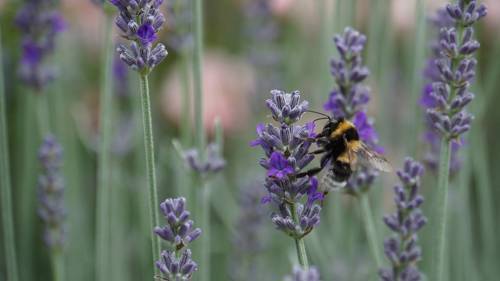
Water management
With climate change comes extreme weather and the increased risk of flooding or drought. There's no drainage in concrete, and when water systems are overwhelmed, there's nowhere for the water to go. Green spaces provide the drainage that is often lacking in cities, towns and villages, with grass, trees and plants available to absorb water runoff.
Of course, different countries in Europe will deal with different levels and types of water management. Southern Europe is likely to be more concerned with drought than flooding, though there are no certainties where the weather is concerned! Plants that can survive with little water will be a priority in these drought-prone areas.
Managing water bodies is also important for maintaining a balanced eco-system. Ponds and lakes can be overwhelmed with algae and other infestations, which, when allowed to thrive, can harm wildlife. Landscapers are often required to step in to help keep the balance; actions like aeration can be vital for keeping an eco-system healthy.
Air quality
Anyone who has lived in or visited a major city will have noticed a significant difference in air quality when compared to the countryside. Pollutants are at a far higher concentration level in cities than in rural areas; created by both a higher population and a higher number of industrial areas.
While things might have improved slightly since the emergence of factories in the 19th century, we still have a long way to go! Creating green spaces improves air quality, as trees and plants absorb pollutants present in the air; plants process CO2, converting it into oxygen.
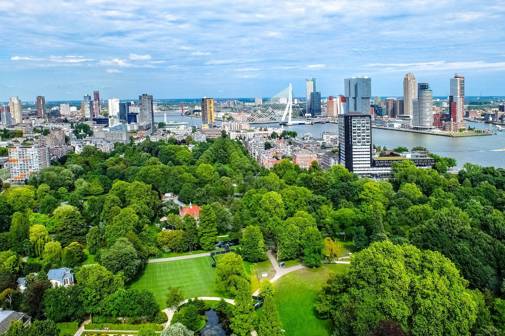
Landscape maintenance and green spaces
As we have discussed, the role and services of landscape professionals are essential in maintaining green spaces. Hopefully, you should now be able to see how much your work benefits society, from both an environmental perspective and a social one.
If you're not yet a landscape professional but are interested in becoming one, read our guide on how to start your own business. For those already established in the industry, take your business to the next level by purchasing equipment that can meet your needs; rely on Powered by Kawasaki machinery to match your level and keep up with a busy schedule.
If you’d like to read about Kawasaki’s sustainability policy, you can find out more here.
You may be interested in
-
Os espaços verdes mais emblemáticos da Europa

-
Quando se deve escarificar um relvado e como revitalizá-lo a seguir

-
Quais são os países mais verdes da Europa?

-
Como tornar um relvado resistente às intempéries e protegê-lo contra inundações, geadas e secas

-
Landscaping trends for 2024

-
Já caiu em algum destes mitos sobre manutenção paisagística?


